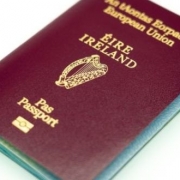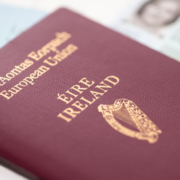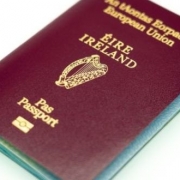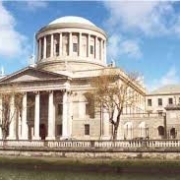The Court of Appeal delivered its judgement on 12th May 2020 in the case of Talla v Minister for Justice and Equality [2020] IECA 135.
The case concerned a Kosovan man whose application for naturalisation was refused on the basis that he was not of “good character” due to having previously committed road traffic offences in the State. He had travelled to Ireland in 2002 when he was 14 years old, and has two Irish born children.
The traffic offences in question related to a routine speeding offence in 2011, to which he was fined €380 and a conviction for driving his brother’s car without the appropriate insurance in the same year. It was noted that the Appellant believed he was covered by insurance and an insurance company had said he was a named driver on his brother’s policy but was not insured on the particular car he was driving. He subsequently paid a fine of €400 for this offence.
In 2016, other charges including failure to produce were struck out and an insurance charge was brought to court in September 2017. It is noted that the Appellant pleaded guilty to this offence but that the District Judge accepted the explanation and plea of mitigation that the insurance policy had not been renewed as a result of a genuine oversight on the part of the Appellant’s brother.
The Appellant applied for naturalisation in 2013 and answered “no” to a series of questions concerning offences and convictions.
When these incidents were brought to the attention of the Appellant and his solicitors in 2014 and in 2017, during the process of his application, explanations were provided to INIS for each of these incidents in considerable detail.
In February 2018, the Minister refused the application for naturalisation. The decision had described the Applicant as having “a history of non-compliance with the laws of the State”.
Delivering the judgement, Mr Justice Haughton, said that that the submission prepared for the Minister which recommended the refusal of his application, failed to refer to any of the explanatory information provided by the Applicant’s solicitors.
The three judge Court of Appeal found that it was not evident that those who had prepared the submission which included an An Garda Siochana report, had considered the exculpatory information presented to INIS.
The Court of Appeal confirmed that the Minister is entitled to take into account a series of infringements of the Road Traffic Acts in assessing whether an applicant is of “good character”.
However, the Court clarified that:
“In the instant case it is “the nature of the offences” that led the Minister to refuse the
application on the grounds that the appellant was not of “good character”. As noted by Faherty J [Zaigham v MJELR [2017] IEHC 630] not all road traffic offences will debar an application. Minor offences do not necessarily reflect on a person’s “good character”, particularly if balanced against other matters in their favour. It is therefore the case that where there are road traffic offences it is the nature of those offences and the circumstances in which they were committed that will demand more attention”. [Para 36]
The Court confirmed that the Minister is entitled to take into consideration “spent convictions” (7 years since effective date of conviction) in considering “good character” for the purpose of assessing naturalisation applications.
Yet, the Court of Appeal reaffirmed in paragraph 37 that:
“While criminal convictions, or the commission of offences, are relevant to
this enquiry and assessment, it is wider in scope than that, and the outline facts and any mitigating circumstances, the period of time that has elapsed since the last conviction, and other factors that may be relevant to character, must all be taken into consideration”.
The Court went on to consider the importance of the Minister providing reasons for a refusal, on the basis of a history of road traffic offences, where the applicant may re-apply in the future. Further, where the Minister relies on the nature of road traffic offences to determine that an applicant is not of good character, the understanding of the nature of offences which led to this conclusion needs to be expressed in reasons that can be understood by the applicant.
The Court of Appeal ultimately overturned the decision of the High Court and found that it could not be concluded that the decision maker- the Director General on behalf of the Minister- had considered all relevant material on file.
The judges opined that a number of concerns arose from the fact that there was no mention in the submission to the Minister of any of the explanations given by the Applicant or his solicitors. The Court found this surprising as they considered them to contain facts of central importance and the lack of such mitigating information therefore created an imbalance.
The Court of Appeal concluded that the Minister had not considered and weighed all relevant considerations before deciding to refuse a certificate for naturalisation and ordered that the decision be quashed and the application be reconsidered in accordance with this judgement.
We at Berkeley Solicitors welcome this very encouraging clarification surrounding road traffic offences and the requirement to be of “good character” in accordance with Section 15A(1) of the Irish Nationality and Citizenship Act 1956.
In our experience road traffic offences are one of the most common reasons for refusal of naturalisation applications, based on good character grounds.
It is very clear from the judgement that the deciding officer’s submission to the Minister regarding such offences must also include a summary of mitigating factors, or otherwise the Minister’s conclusion on good character is not reached in a fair and balanced manner.
We would submit that the time that has elapsed since the minor road traffic offences and the fact an applicant has not had any further offences are mitigating factors that should always be brought to the Minister’s attention, and minor traffic offences should not be held against Applicants indefinitely.
Our office is experienced in the submission of applications for naturalisation as an Irish citizen and do our best to assist our clients through this lengthy application process. If you or your family are impacted by these issues or similar issues, please do not hesitate to contact us to discuss this in more detail.
The judgement can be read in full here.





